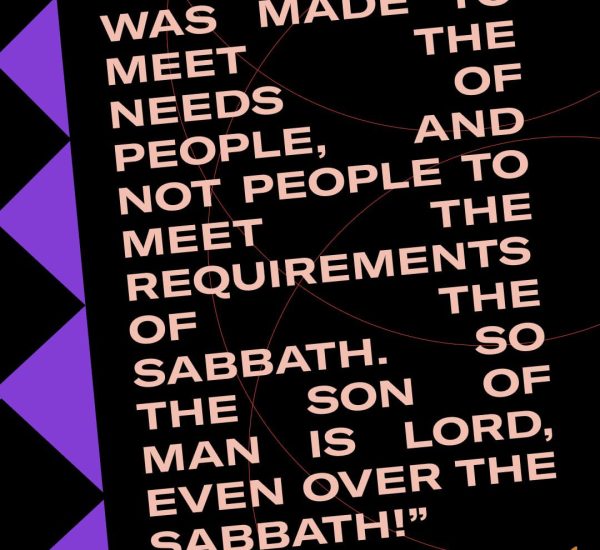TUESDAY, AUGUST 20, 2025
The Dynamic Intersection of Belief and Action
Memory Verse: “In the same way, faith by itself, if it is not accompanied by action, is dead.” – James 2:17, NIV
Text: James 2:14-26
MESSAGE: The Great Debate: Faith vs. Works
For centuries, theologians and believers have wrestled with the apparent tension between the teachings of Paul and James. Paul, in books like Romans and Ephesians, emphasizes that salvation is by grace through faith alone, apart from works (Ephesians 2:8-9). James, in his epistle, famously declares that faith without works is dead. Is this a contradiction?
The answer lies in understanding the different perspectives of these two apostles. Paul was addressing a legalistic Jewish audience who believed they could earn salvation through their adherence to the Law. He needed to establish that no amount of good deeds could ever make a person right with God. Salvation is a free gift, received by believing in Jesus Christ.
James, however, was writing to a different audience—Christians who had a flawed understanding of what “faith” truly meant. They had intellectual assent to the Gospel but were not living lives that reflected their belief. James was not arguing that works save a person; he was arguing that true saving faith is always accompanied by good works. To him, works are not the root of salvation but the fruit of it. They are the evidence that a person’s faith is genuine and alive.
The Case of a Dead Faith
James provides a powerful illustration to make his point. He asks us to imagine a person in our community—a brother or a sister—who is hungry and without clothes. If we simply say to them, “Go in peace; keep warm and well fed,” but do nothing to meet their physical needs, our words are empty. What good is this kind of faith? It is useless. It offers a promise without providing the means.
This is the very essence of a dead faith. It is a belief system that exists only in the mind, with no manifestation in the real world. This intellectual faith is not enough to save anyone. James says it plainly: “What good is it, my brothers and sisters, if someone claims to have faith but has no deeds? Can such faith save them?” (James 2:14). His rhetorical question implies a clear “no.” A faith that does not compel us to act on behalf of others is a faith that is not alive.
James even goes so far as to say that this kind of faith is no better than the belief of demons. “You believe that there is one God. Good! Even the demons believe that—and shudder.” (James 2:19). Demons have perfect knowledge of God. They believe in His existence and His power. But their belief does not produce love, obedience, or good works. It only produces fear and trembling. Our faith must be more than just intellectual assent; it must be a force that transforms our lives and moves us to action.
The Evidence of True Faith
To demonstrate the difference between a dead faith and a living faith, James points to two biblical examples: Abraham and Rahab.
Abraham: Our father Abraham was already considered righteous because he believed God’s promises (Genesis 15:6). However, James shows that Abraham’s faith was “made complete” by his actions. When God asked him to offer his son Isaac on the altar, Abraham obeyed without hesitation. He was ready to sacrifice his most prized possession because his faith in God was so strong. James emphasizes that “his faith and his actions were working together” (James 2:22). His act of obedience was the tangible evidence of his profound faith. It was the fruit that proved the tree was alive.
Rahab: The story of Rahab is even more striking. She was a prostitute in a pagan city, and yet she was considered righteous. Why? Not because she intellectually believed in the God of Israel, but because of what she did. She risked her life to hide the Israelite spies and sent them away safely. Her action was a testament to her faith in the God she knew was in control. James uses her story to show that even a person from the most unlikely background can be made righteous through a faith that is expressed in courageous and selfless action.
These two examples—a patriarch and a prostitute—show that God does not favor one person over another. He looks for a heart that is not only full of belief but also ready to act on that belief.
The Call to Action: To the Work!
The beautiful hymn, “To the Work,” is a perfect summary of James’s message. It is a call to action, reminding us that we are “servants of God” and must “do with our might what our hand find to do.”
This is not a suggestion; it is a command. Every day, God gives us opportunities to be His hands and feet in a broken world. These opportunities are all around us: a neighbor in need of help, a community that lacks clean water, a friend who is lonely, or a hungry family. Our faith is meant to be a tool for good, a means to show the world the love of God in a tangible way.
Think about the church in the rural community. They didn’t just pray for the people to get clean water. They went in and sank a borehole. They met a physical need first, and in doing so, they opened the door for the Gospel to be heard and received. This is a practical example of faith in action. A hungry person will be more receptive to the Gospel after they have been fed. A person who feels loved and cared for will be more likely to listen to the message of salvation.
A Personal Reflection
The question for each of us today is: Are you using your God-given resources to meet the needs of others around you? These resources are not just money; they include your time, your skills, your words, and your compassion. Are you focused on personal gain, or are you focused on building the Kingdom of God by touching the lives of the people He brings your way?
Remember, the Bible says that “the body without the spirit is dead, so faith without deeds is dead.” Your faith is the spirit, and your deeds are the body. They must work together in harmony to produce a living, vibrant, and powerful testimony.
Perceive, Ponder, and Practice
- Perceive: The body without the spirit is dead, so faith without deeds is dead.
- Ponder: Are you using your God-given resources in ways that will please the Master?
- Practise: Show acts of kindness to people you come across today.
Prayer
O Lord, help me to put Your word into practical reality. Let Your hand be upon me that the difference will be evident in my environment. Fill the heart of men with boldness to declare Your Word as the MMU National Congress begins today at Delta State. Amen.






